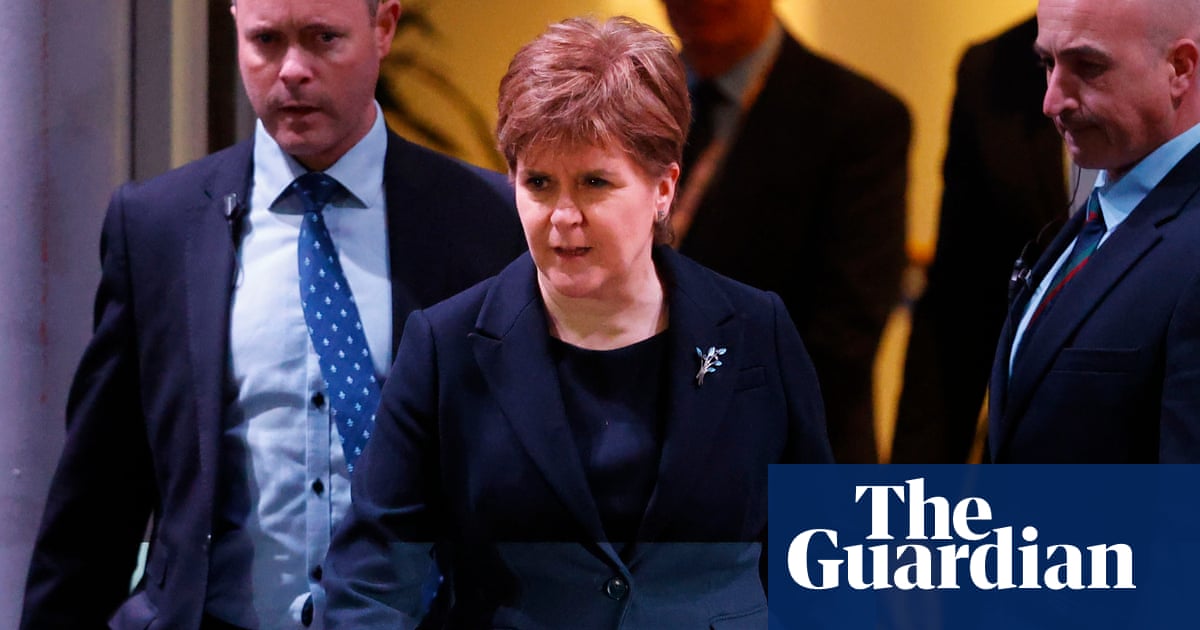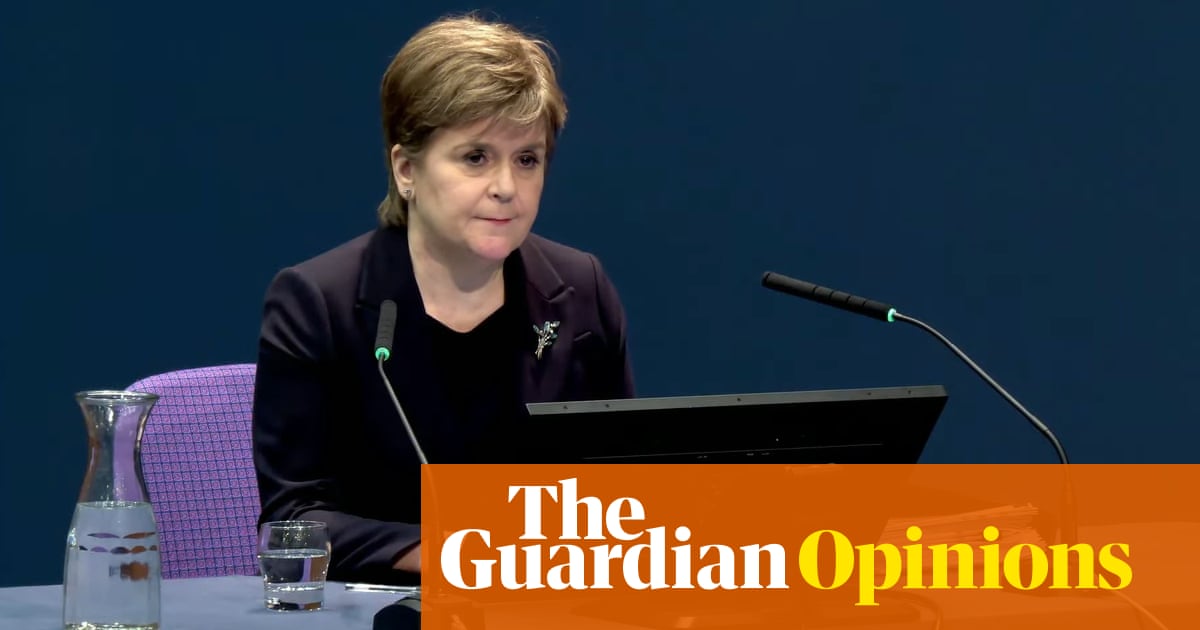
he civil war the SNP has spent six months insisting doesn’t exist has finally exploded into the public domain. Scotland’s first minister, Nicola Sturgeon, who has so far managed to hold her silence while supporters of Alex Salmond briefed against her, finally let rip during an interview on Sky’s Sophy Ridge on Sunday show.
“I think the reason perhaps he is angry with me, and he clearly is angry with me, is that I didn’t cover it up – I didn’t collude with him to make these allegations go away,” she said.
A source close to Salmond denied he was angry with Sturgeon and said her claims of attempted collusion were not only untrue, but “unsupported by the written evidence and directly contradicted by her own previous parliamentary statements”.
Sturgeon’s outburst was the first time she had retaliated since her mentor-turned-rival pledged to bring more evidence to light – words appearing to refer to his longstanding belief he was set up by the Scottish government – after his acquittal in March on 13 sexual offences charges.
To many of those outside Scottish politics, the continuing parliamentary inquiry at the centre of these tit-for-tat exchanges must seem like a grubby sideshow. What was this internecine squabbling, but a distraction from the fight to bring Covid-19 under control?
Yet the inquiry – set up to scrutinise the Scottish government’s handling of the original complaints against Salmond is important.
It matters because the botching of the newly instituted code of practice failed both Salmond and the women involved, and because a judicial review, which ruled it unlawful, cost the taxpayer more than £500,000.
It matters because the willingness or otherwise to cooperate with its questions is a test of accountability and therefore good governance. It matters because – as things stand – the scalps that may be claimed include the permanent secretary, Leslie Evans, the SNP’s chief executive (and Sturgeon’s husband), Peter Murrell, and even – potentially – Sturgeon herself.
A few weeks ago, the first minister appeared unassailable. Her handling of the pandemic, while not without its missteps, was viewed as superior to Boris Johnson’s and so her approval ratings soared, as did support for independence.
But as Sturgeon fumbled over the closure of pubs and restaurants in parts of the country, her approach to Covid-19 has looked less surefooted. The inquiry too is beginning to take its toll.
The Scottish government’s apparent failure to hand over requested documents, which has infuriated the committee and stalled the hearings, is reinforcing a longstanding perception of the SNP administration as lacking in transparency.
Meanwhile, text messages sent by Murrell – in which he talks of “pressurising” police and suggests “the more fronts [Salmond] is having to firefight on the better” – are grist to the conspiracy-theory mill.
Equally problematic are the meetings and phone calls Sturgeon held with Salmond after the initial complaints had been raised, and apparent discrepancies in the timeline she provided to parliament.
The first minister told Holyrood she first found out about the allegations raised under the new process when Salmond came to her house on 2 April 2018. Later, however, it emerged that she had been alerted to their existence, if not their substance, at a meeting with Salmond’s former chief of staff, Geoff Aberdein, on or around 29 March.
Sturgeon says she simply forgot the earlier meeting. But sceptics have asked how such a significant event could have slipped her mind. There are also subsequent meetings with her predecessor, which some believe put her in breach of the ministerial code. Such matters are eroding trust.
When considering the attacks being made on Sturgeon’s probity, however, it is worth keeping a broad perspective. There is, within the wider independence movement, a determination to bring her down. Opposition parties too are looking to capitalise on any perceived weakness.
The Tories, in particular, have been fixating on the “forgotten” meeting. But no one has put forward a convincing motive for lying about it. What is Sturgeon supposed to have gained by pushing back the date she found out about the allegations by four days? On the contrary, the omission has caused her nothing but grief.
As far as her subsequent meetings with Salmond are concerned, they were injudicious; but, on a human level, it is not difficult to understand why – having viewed him as a friend and mentor for more than 30 years – she would find it hard to deny him her time.
Nor should it be forgotten that this saga unfolded against the backdrop of #MeToo, with institutions bracing themselves for the next big scandal. In such a febrile atmosphere, it would be easy for good intentions to go awry, and for errors of judgment to be made.
Yet Sturgeon is correct when she points out she has been accused both of colluding with her predecessor and of conspiring against him, though the two scenarios are mutually exclusive.
She claims she refused to intervene when Salmond asked her to encourage the permanent secretary to accept his request for mediation – an account partially backed up by messages between the two. How much more damaging would it have been if she had agreed?
None of this is to suggest that Sturgeon’s actions should not be scrutinised. Nor that what we have seen so far does not leave her government tarnished. But equally, it is important to guard against the inquiry being hijacked by those whose principal aim is not to establish what went wrong, but to bring down the first minister by any means necessary.
In her own submission to the inquiry Sturgeon wrote: “In what was a very difficult situation – personally, politically and professionally – I tried to do the right thing.
“Whether I always got it absolutely right is something I still reflect on, and the committee will consider, but I sought all along to act in good faith and to strike the right balance of judgment given the difficult issues I was confronted with.”
Unless the inquiry finds Sturgeon acted maliciously or that she was motivated by a desire to keep her predecessor out of frontline politics, she should keep her job.
In an era where a succession of (male) politicians have made terrible decisions for selfish reasons, and brazened it out, demanding her resignation for errors made in good faith would be a travesty.
• Dani Garavelli is a freelance journalist and columnist for Scotland on Sunday












